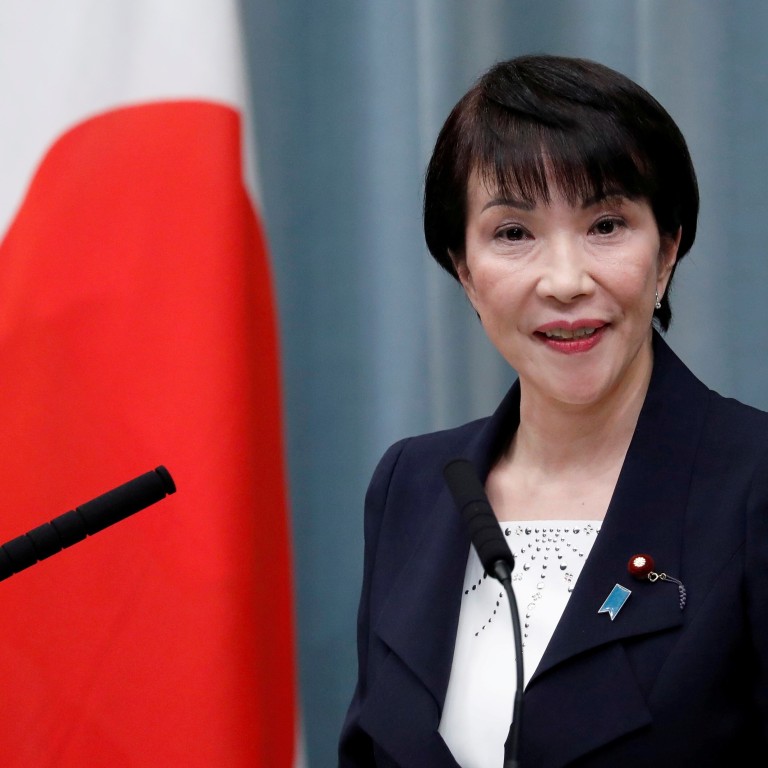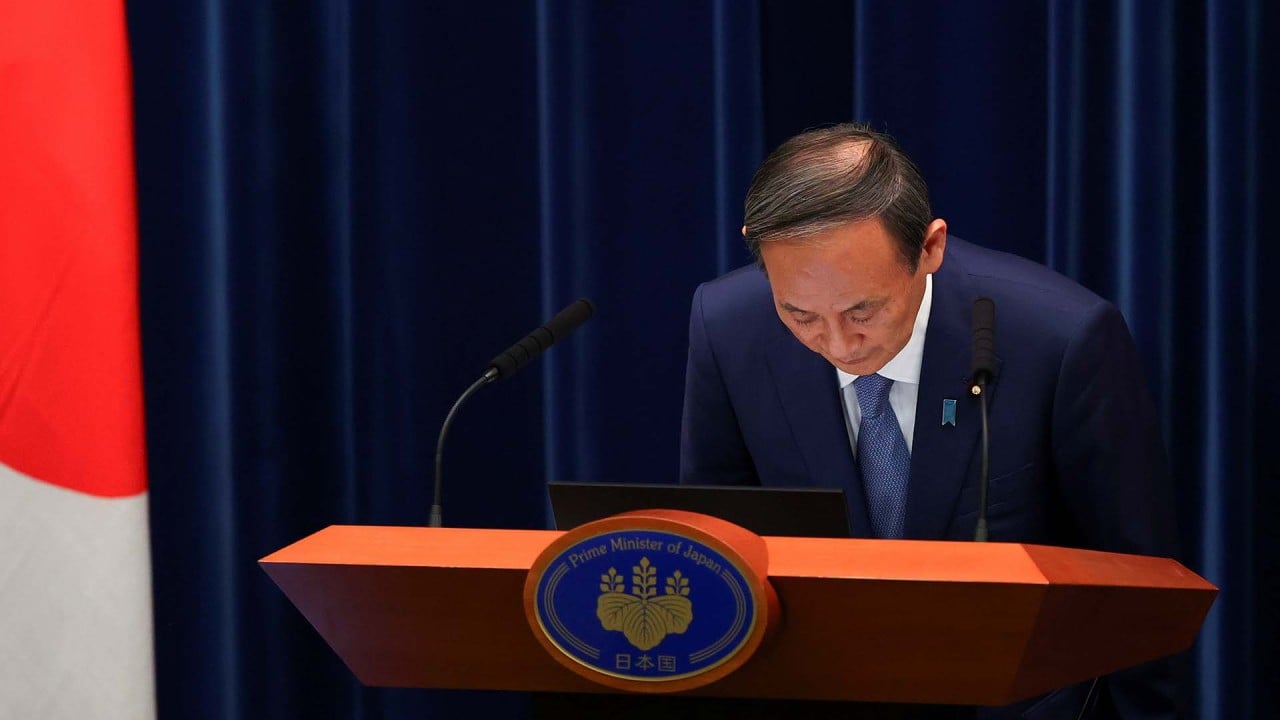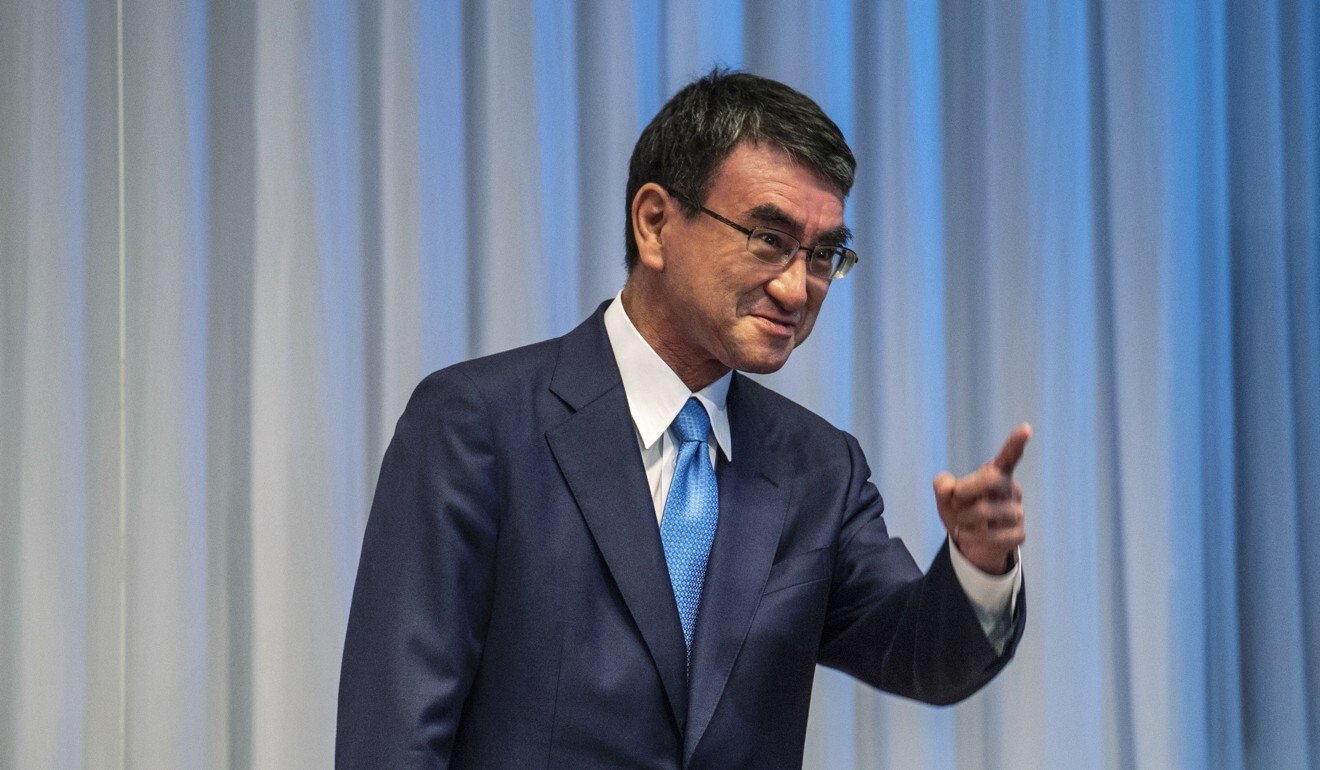
Japan’s ‘Iron Lady’ Sanae Takaichi focuses on Taiwan, US in appeal to China hawks before LDP vote
- Takaichi is the most hawkish candidate in the ruling party’s election next week, the winner of which will be Japan’s next prime minister
- She is looking to burnish her credentials with conservatives vocal over China’s attempts at regional control, but analysts say she faces an uphill battle
During their 30-minute conversation on Monday afternoon, former internal affairs minister Takaichi, 60, emphasised that she hoped to enhance security ties between Taipei and Tokyo, and step up business exchanges as well.
Takaichi later tweeted that the discussions were “positive”, while Tsai expressed hope following their talks that self-ruled Taiwan and Japan would be able to cooperate more closely in the future, adding that mutual assistance between the two governments was critical to regional stability.
Will Japan get its first female prime minister as two women run?
Key issues in the immediate future included regional security, economic development, and the global supply chain, Tsai said.

02:22
Japanese Prime Minister Yoshihide Suga to step down
According to Ito, this is an approach that is at odds with her rivals – vaccinations minister Taro Kono, former foreign minister Fumio Kishida, and acting LDP secretary general Seiko Noda – who have focused their campaigns on defeating Covid-19, rebuilding the economy, and getting the lives of ordinary people back on track.
Kono and Kishida have both, at times, been outspoken about China and the challenges an increasingly aggressive Beijing poses to Japan, but for this election they are both focusing their attentions closer to home.
The party leadership election takes place on September 29, with the winner also taking over from Yoshihide Suga as prime minister. The new national leader will be confirmed during an extraordinary session of the Diet on October 4, paving the way for a general election in early November.
Japan sends message to China, US with largest military drill in 30 years
The latest indications are that Kono is the most popular candidate with rank-and-file members of the party, more than 1 million of whom will vote in the leadership election. Former premier Abe, however, retains immense influence behind the scenes and has thrown his personal support behind Takaichi.
Should she be unsuccessful in the first round of voting, which will whittle the candidates down to two, Abe and his faction are expected to coalesce behind Kishida in order to keep the more centrist Kono out of power.

Stephen Nagy, an associate professor of international relations at Tokyo’s International Christian University, said Takaichi had been forced to be outspoken on Taiwan and security issues because she needed the attention.
“She is on the fringe in terms of how Japan has been dealing with the Taiwan issue so far, and there is no desire within the political or bureaucratic worlds here to change that position and advocate [Taiwanese] independence,” he said.
Japan tracks Chinese destroyer and suspected submarine on edge of its waters
“Takaichi is completely out of step with accepted thinking and this just shows how little she understands of Japan-China relations and just how Taiwan fits into that. Comments like these will not sit well with the vast majority of the party or the broader public.”
China’s state media has remained silent on Takaichi’s latest comments, although the nationalistic Global Times tabloid has in recent weeks described her as having an “aggressive stance” and being an “Abe disciple”.
Meiji University’s Ito said that going by recent conversations with colleagues and counterparts at universities and think tanks in China, the widely held belief was that a woman described as Japan’s “Iron Lady” would be the “worst outcome” for Beijing.

